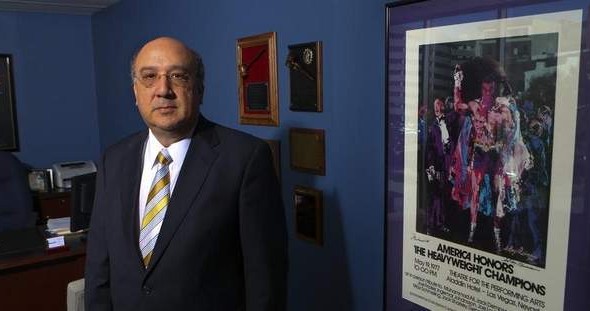
Front Page News, lead story in the Courier Journal: December 2, 2012
Written by Andrew Wolfson | The Courier-Journal
Louisville attorney Paul Gold has golden touch in winning DUI acquittals
Watch the related Courier Journal Video HERE
Police seem to catch Paul Gold’s clients dead to rights — driving under the influence, their breath-alcohol levels often well above the legal limit.
But then the defense lawyer goes to work, often putting the arresting officer on trial.
From 2007 though this year, Gold tried 31 drunken driving cases before judges, opting not to use a jury, and won acquittals or dismissals in 28.
And one of the keys to Gold’s success is his relentless challenges of the arresting officer.
If an officer testifies that the defendant’s eyes were “glassy,” Gold asks if his client could have been tired, had allergies or just done too much reading?
If an officer describes the driver’s speech as slurred, Gold asks: Isn’t it true you have never talked to the driver before? Maybe he always talks like that?
If an officer says the motorist stumbled while performing a “walk and turn” or “one leg stands” — part of the standard field-sobriety tests — Gold makes him admit there may have been pebbles or sticks or glass or ice or cracks on the roadway.
If an officer says he smelled alcohol as he approached the defendant’s vehicle, Gold gets him to acknowledge that the smell may have come from a passenger or from alcohol spilled on the vehicle’s floor.
And even if the driver smelled of alcohol, isn’t it true, asks Gold, that there is no law against driving while smelling of alcohol? (There is not.)
If an officer says a driver failed the battery of field-sobriety tests, Gold gets the officer to admit that he forgot to ask the suspect if he was taking any medications or had a bad knee that could explain the results. Both are required by law.
If that doesn’t work, Gold asks the officer if he told the driver what he needed to do to pass. Did he let the driver practice first? Did the driver understand the instructions, or is English not his native language?
By the way, Gold asks, how many years has it been since the officer was trained in administering a field sobriety test? Was the last training at the police academy?
Can the officer recite the “clues” to look for in each part of the exam? Has he read the National Highway Traffic Safety Administration drunken driving handbook?
He can’t? He hasn’t? Maybe the arrest or evidence should be suppressed, Gold suggests.
And when it is, Gold moves to dismiss the case.
Gold, 61, served nine years as a Jefferson County District Court judge. He says that drunken driving cases now make up about half his practice.
He settles most through plea bargains to reduced charges, he says.
In an interview, Jefferson District Judge Katie King said of Gold: “He is very creative, very inventive. It just amazes me his ability to take a case and pick it apart.”
Gold said his questioning at trial is part of a legitimate effort to search for errors by police officers and contradictions between what they write on citations as well as what is shown on videos taken from their cruisers. He says officers don’t always tell the truth, and sometimes they forget the truth.
He also will try to show that defendants were not offered the chance to get an independent blood test or given the right to try to contact a lawyer before taking a breath-alcohol test.
“I am a believer in the constitution,” he said. “What makes me worry is when we throw out the rule of law and we make the assumption” that, because there is a high blood-alcohol reading, “everyone should be convicted whether or not the procedures the law requires are followed.”
